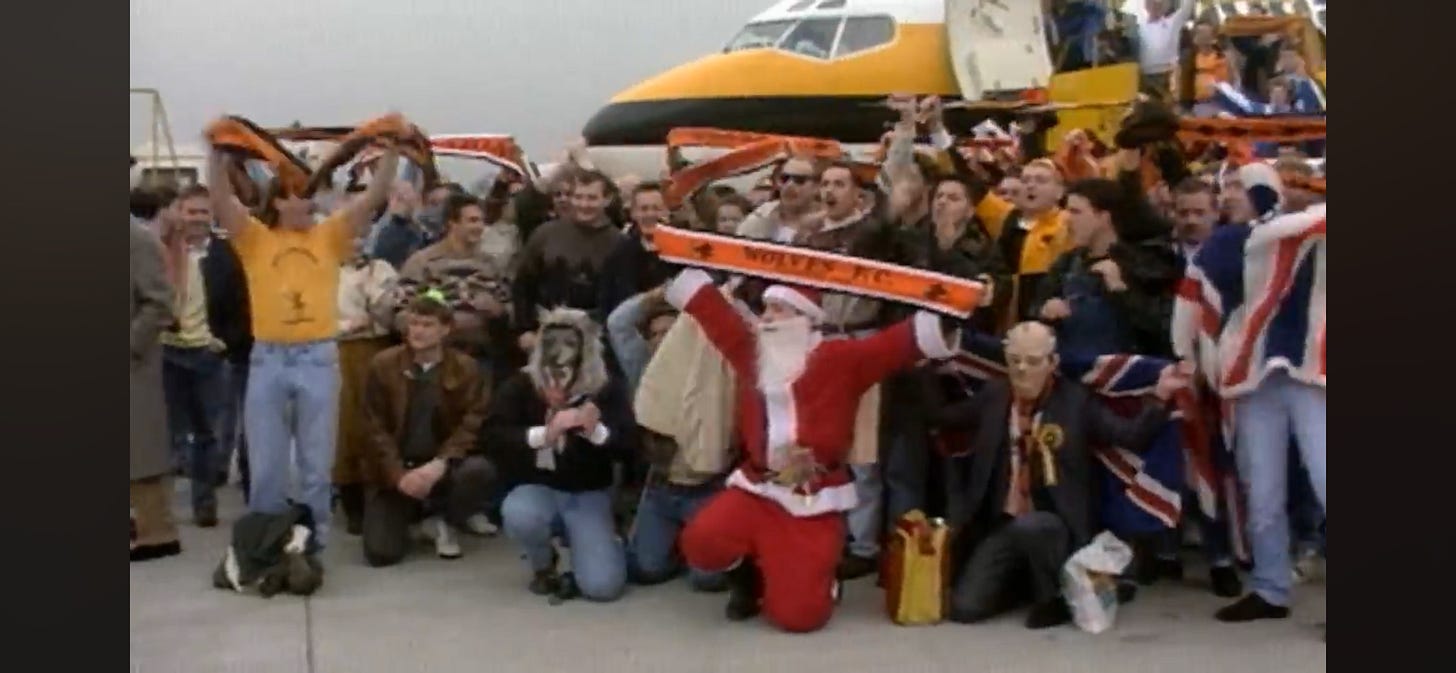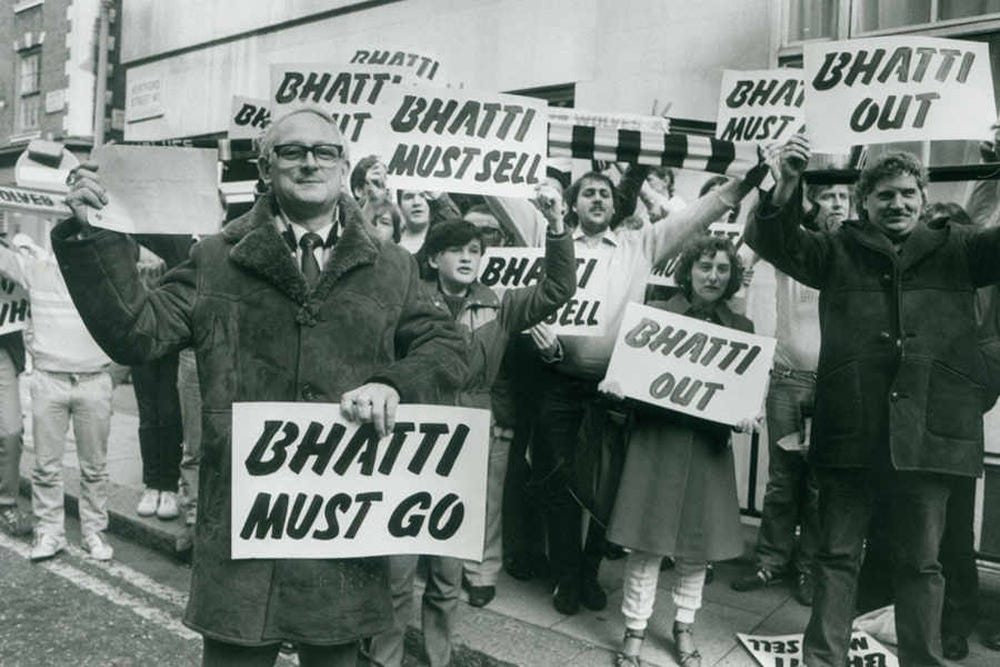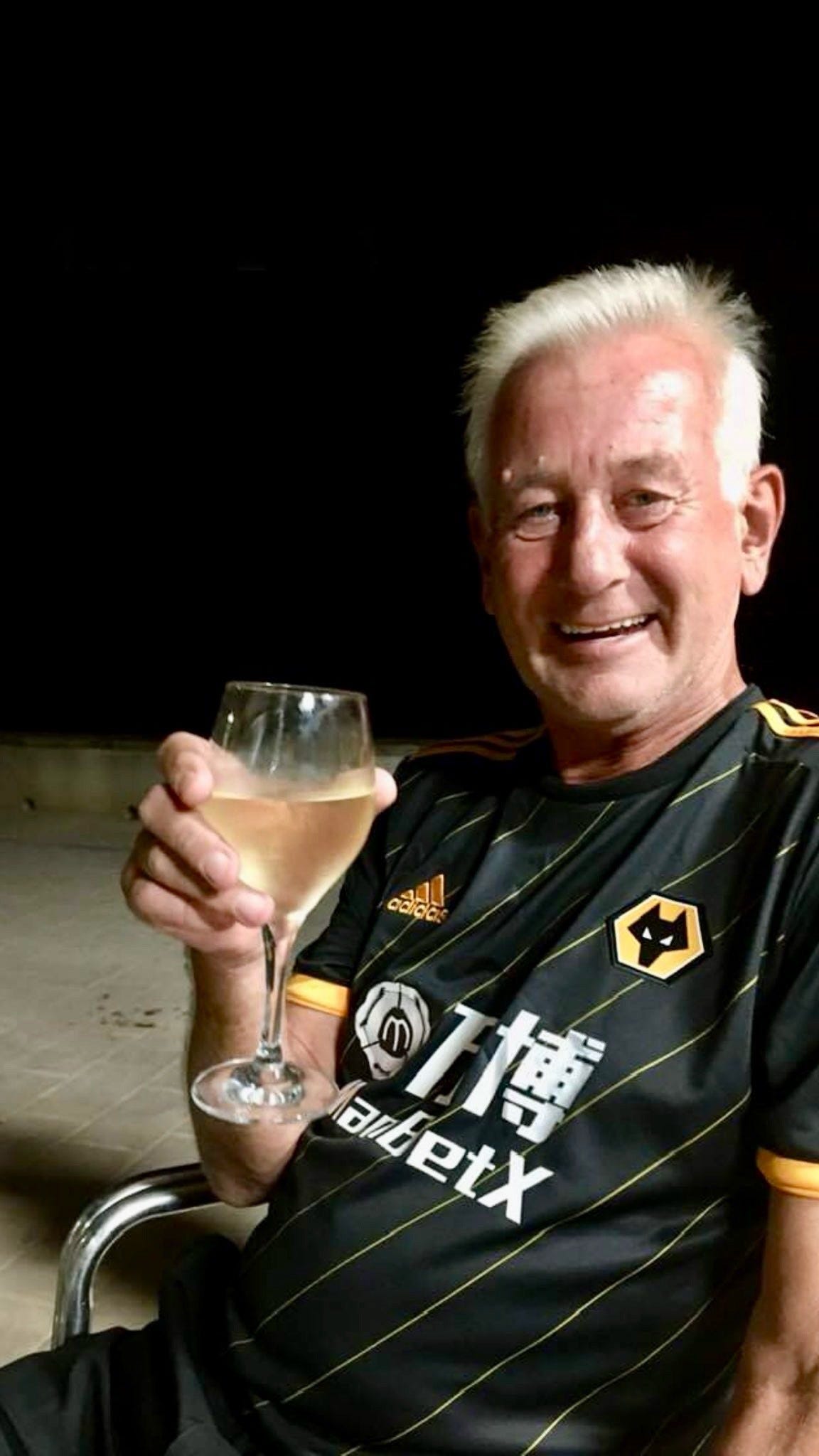Supporter-power has been on the agenda in these early summer weeks at Wolves, ever since the club announced its season-ticket price hike in May. The Fan Advisory Board met with club representatives to seek a path forward, which resulted in the freeze of junior prices for the forthcoming season and the promise of adult season-ticket prices being frozen the following campaign.
How much of a concession that represented is up for debate, as is the nature of the representation from those supporters selected on the fans’ board. But, we should never lose sight of the central tenet that football clubs exist to serve their communities, above all else.
One of Wolves’ much-loved and dedicated supporters, who played a key role in two of the most colourful chapters of this club’s history, died recently. George Dawidow’s passing last month, at the age of 72, is a reminder of supporters’ strength when rising to a challenge, no matter what obstacles are placed in front of them.
George was involved in two moments of Wolves’ history which in their very different ways demonstrate the power of fan-mobilisation. One was a hugely uplifting tale, which put smiles on the faces of everyone who was touched by it. The other came in far more concerning times, during the club’s nadir. They have become part of folklore and represent the very fabric of the club perfectly: its supporters.
George was the fan whose idea for an away trip to Newcastle United during the 1989/90 season eventually led to the famous New Year’s Day airlift, when Wolves supporters chartered a fleet of Boeing-737s for the journey to the Second Division match in the north-east.
With a couple of friends, George approached Albert Bates, chairman of the official supporters’ club, several weeks ahead of the game and asked if there was any chance a small plane could be chartered for the journey as they had a big New Year’s Eve planned and didn’t fancy a long drive with a hangover the following morning.
“I had contacts within the air industry, not directly with aircraft, but with support equipment at the airports,” recalls Albert. “That's how it kicked off, three or four businessmen asking if I could organise something for them because they didn't fancy a five- or six-hour drive having been on the pop the night before.”
Albert made some enquiries and came back with a cost in excess of £350 per person. For a while the idea seemed to have stalled, but several days later George returned and said there were a few more people interested in flying. When Albert made some more enquiries, the cost came down again.
It was at this point Albert received an unexpected phone call at his home. “It was from an ex-pilot called ‘Rick’, whom we didn't know. He rang here completely out of the blue, there was no intermediary, unless someone within the airline industry said there's an opportunity to charter an aircraft and gave him our number. He said he had heard we were looking for a plane.
“At that time we said we weren't really, but he said not to turn people away, if the word gets out and we get enough people then logic says the price will tumble and we might find ourselves being able to put the aircraft on.”
‘Rick’ was Ian Rixon, a former Dan Air pilot who had set up his own business, Farnborough Executive Aviation, as a charter broker.
“So we put an advertisement in the Wolves programme as the official supporters' club, so that people would know this wasn't some kind of crank or anything like that, because quite frankly that's the way we looked at it. It went manic, just jumping; 30 people, 40, 50 and so on. I was getting rather concerned because we kept ringing this guy, Rick, to update him.
“He kept reassuring us that, however many it was, he would match the number of fans with the plane. And I took him at his word, because he knew his business. When it got to 80 he said, “I can get you a Boeing-737 airliner for that number of people”, and the price came down again. Then it spiralled beyond that, the grapevine became enormous when people knew that there was a jet airliner going. Another lot came on and the numbers grew very quickly.”
One plane became two, then three, then four and so on. Eventually enough supporters had signed up for the trip to fill six planes. Rixon had chartered the Boeings from Monarch Airlines. Suspicions had been raised at the top of the company.

“The doorbell went here one day and it turned out to be two directors from Monarch Airlines who had come to see us,” Albert says. “They were well dressed and presentable, and asked if they could have a word with us. They said that on average they might get around 300 enquiries a day to charter an airline, and if two of them come off they've had a good day. They said, ‘Then Mr Bloggs walks in off the street and charters the entire fleet, none of us believed that was possible’.”
Come New Year’s Day, over 900 supporters – many in fancy dress - headed to Tyneside from Birmingham International Airport on six Monarch Airlines Boeing-737s, along with two other planes chartered for the trip, paying £75 each for a ticket.
George dressed up as Sylvester The Cat with his wife Ann in Tweetie Pie costume, creating a magnificently bizarre scene at check-in alongside snowmen, reindeer, tigers, bears, a Pink Panther and a Santa Claus. With Steve Bull scoring all four Wolves goals in a 4-1 victory over the Geordies, the trip went down in folklore and is widely regarded as the greatest away day in the club’s history.
“George's passion for Wolves was unparalleled,” Albert explains. “He was a familiar face in the bedding retail market shops, where his allegiance to Wolves was well-known and respected by fans of all clubs. George's dedication to the club extended beyond mere fandom, though; he was deeply involved in efforts to save the club during the tumultuous times under the Bhatti brothers’ ownership.”
The Bhattis’ regime between 1982 and 1986 bankrupted the club to the point of near-extinction. They had bought Wolves through their company Allied Properties, but on failing to complete a deal for some land behind the North Bank stand they essentially lost interest in the club.
George joined Albert and his wife Muriel, alongside many others who could not stand by and watch Wolves’ demise without resistance. They mobilised the supporters in an attempt to force the absentee owners to relinquish control of the club.
“George approached me with a fervent desire to do more, believing that the efforts to save our beloved club were insufficient,” Albert adds. “This determination led us to stand for council positions, with George as the obvious candidate to spearhead the fight against the club's potential closure. Our campaign significantly impacted local politics, drawing votes away from incumbent councillors and highlighting George's influence.”
Eventually, it was council leader John Bird’s commitment to the cause which proved decisive, paving the way for a rescue package involving Wolverhampton Council, Asda and developers Gallagher Estates. The Bhattis were finally consigned to history when a Middle East bank called in a £700,000 debt owed by Allied Properties. Their four-year absentee tenure ran the club into the ground. They left as they arrived, neither seen nor heard, and with them went the worst period in a proud club’s history.
To this day, Albert recalls the extraordinary council meetings he attended with George during the mid-Eighties as if they happened just hours ago. In an amongst his recollections of such a tumultuous period there is also the recognition that he and others put their head above the parapet in an almost naive manner.
When fans went down to the London premises of Allied Properties to protest, the Bhattis put them under surveillance. It was a disturbing move, to the extent that the Metropolitan Police got involved over concerns for the safety of Albert and others. Yet, perhaps that was also the moment when the supporters knew they had won. A last hapless roll of the dice involving that age-old desperate ploy of intimidation. The game was up.
Just three-and-a-half years later, Albert and George had swapped the council meetings for a seat on a plane to Newcastle. It felt like a world and a lifetime away. With George’s passing, another part of Wolves’ story fades but these stories never die, merely passed on through generation to generation.
Wolves’ current owners have overseen the most successful period in over 40 years, and supporters are preparing for a seventh straight season of top division football. Yet, the season-ticket fiasco is a reminder that nothing should ever be taken for granted. The fans who tread the paths from pubs to turnstiles every week do so steeped in their own story of what Wolves means to them.
“George was a regular at The Chindit pub, a popular stop on the way to all home games,” Albert continues. “Many who frequented the pub will remember George with great fondness, recalling his enthusiasm, warmth, and unwavering support for Wolves. His legacy extends beyond England's borders, as he established a Wolves Supporters group in Spain, where he retired.”
He lived his later years on the continent with his second wife Amrit, with both attending the club’s pre-season tour matches in July 2022 under Bruno Lage. George was able to enjoy a wry smile at the choice of location. It was far more convenient than the club’s planned tour to America, which fell through at the eleventh hour. Benidorm instead, then! George knew better than most not to take anything for granted when it came to Wolves.
As Albert concludes, George’s devotion was undiminished throughout so many different eras: “His spirit will live on in the hearts of all who knew him and in the club he so dearly loved.”







Excellent Johnny — Thank you for reminding us all - And how even the little guy can sometimes overcome “system “